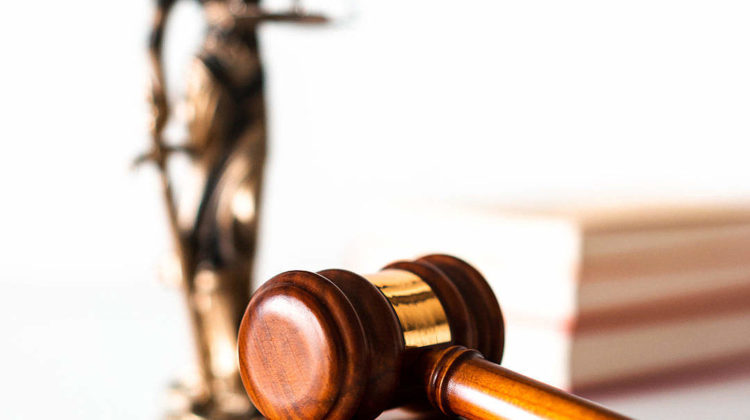
Officials throughout America are abolishing the cash-bail system. Photo credit: JumboPics
The cash-bail system is standard American practice. Simply, it allows a defendant to pay a monetary fee in order to remain out of jail until a judge or jury sentences them. Bail denotes the amount that one pays a bondsman, which is ordinarily 10% of the total bond as determined by the judge.
In some cases — particularly for violent charges — officials may not offer a bond or release an individual before their trial. However, when someone that officials accuse of a crime remains in jail until their trial, it is referred to as pre-trial detention.
According to the Hamilton Project — a policy initiative associated with the Brookings Institute — less than 10% of those in pre-trial detention are denied bail. The rest are offered monetary bail. This means judges found that 90% of those arrested posed no threat to the public, and were not at-risk of fleeing before their trial.
Denying bail can inhibit someone from re-offending and harming more people. Yet, for others that officials offer bail — or those which a judge determines is not an immediate threat to others — the amount of money in their bank account (or their friend’s and family’s bank accounts) determines if they will remain free before their trial or languish in a jail cell.
The average number of days that someone spends in jail awaiting trial is between 50 to 200 days, reports the Hamilton Project.
This means that someone could wait hundreds of days for their trial, only for a jury to acquit them. In those cases, an innocent person may be incarcerated for no other reason than lack of money.
Post from @prisonpolicy on Instagram.
The Financial Consequences of Pre-Trial Detention
Cash-bail perpetuates poverty. For example, if officials arrest a non-affluent person for a non-violent crime, and offer them a bond amount that they cannot afford; they can spend anywhere from one to 200 days behind bars waiting for their trial. During that time, they can lose their job; incur various fees associated with incarceration (calls and other expenses); and will still need to find a way to pay their ordinary month-to-month bills.
So, cash-bail is a practice that enhances financial struggles. But if one is rich or in the middle-class, they can instead use the system to obtain freedom.
As the American Bar Association affirmed: “in the United States, wealth, not culpability, often shapes [legal] outcomes.”
Furthermore, pre-trial detention also privileges the rich and exacerbates the financial instability of the poor.
Post from @bailproject on Instagram.
The financial impact of pre-trial detention doesn’t fall solely on the incarcerated individual, or their families. It also has a financial impact on the general public.
More specifically, Americans spend $14 billion annually to detain people before their trial, reports the Pretrial Justice Institute. That means that officials spend $14 billion in American tax funds to incarcerate people they have not convicted of a crime.
Traces of Hope: States Eliminating Cash-Bail
In 2017, New Jersey made an effort to make punishment slightly more egalitarian through the passage of the Criminal Justice Reform Act. This act effectively dismantled the cash-bail system in all New Jersey State courts. A risk-based system replaced it. Rather than having judges impose a cash-bail amount on every sentence, this act gave judges discretion to release or detain defendants based on their risk to the public.
If defendants pose any risk (such as a propensity for violence, or the possibility of evading trial), judges won’t grant their release. Instead, they remain in pre-trial detention. But, if someone poses no risk, a judge releases them until their trial with no cash-bail.
This has led to a 43% decrease in the pre-trial detention jail population in the state. Additionally, it has saved the people of New Jersey hundreds of thousands of dollars.
Washington D.C. has a similar risk-based system that also limits the use of cash-bail. They release 88% of people (with no cash-bail). To ensure they will attend their court date, officials monitor them on a daily basis, reports the Pretrial Justice Institute.
California state courts have also seriously reduced their reliance on cash-bail. This year, NPR reports, Californian courts found it unconstitutional to set bail at a price defendants cannot reasonably afford. So, cash-bail is still in effect in California. Instead, it is based on the defendant’s income.
Race, Substances, and Pre-Trial Detention
Implicit racism has pervaded every facet of the criminal justice system — and the cash-bail system is no exception. Since officials disproportionately arrest Black and Brown people, the cash-bail system also disproportionately affects people of color. This is simply because they are arrested more frequently.
But people of color are less likely to afford bail. Consequently, people of color are more likely to be incarcerated even if they are not convicted of a crime.
There is also a blatant connection between drugs, race and pretrial detention.
The war on drugs disproportionately affects minorities; people of color comprise 80% of those incarcerated for drugs in federal prison and 60% of those incarcerated in state prisons.
Post from @bailproject on Instagram.
This leads to higher incarceration rates and more Black and Brown people in pre-trial detention. Pre-trial detention directly contributes to higher incarceration rates as well. Especially since those that cannot afford bail are more likely to enter a plea bargain regardless of their innocence.
This means that the drug war, structural racism, and the cash-bail system are inextricably connected.



Leave a Reply